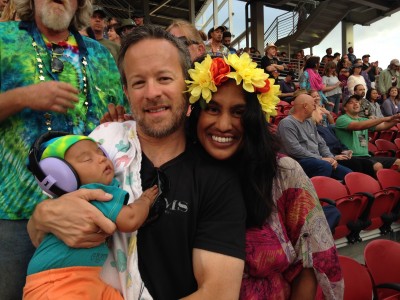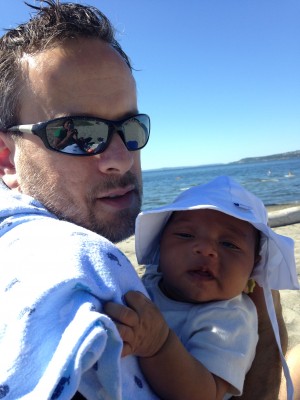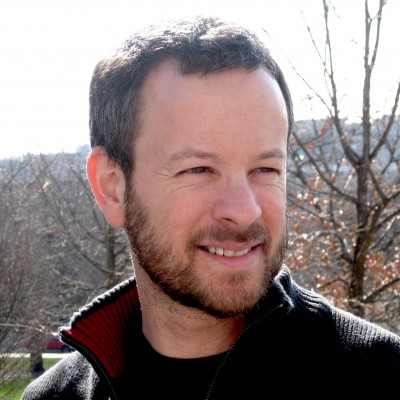Andrew Altschul was the Associate Professor and Director of the Center for Literary Arts at San Jose State University. He earned an MFA from the University of California, Irvine, and was Wallace Stegner Fellow in Creative Writing from 2002-2004 at Stanford University. He has published two novels as well as short fiction and essays. He received an O. Henry Prize in 2007 for “A New Kind of Gravity,” and his first novel,Lady Lazarus was a finalist for the Northern California Book Award in Fiction. He has taught undergraduate and graduate fiction workshops as well as literature courses such as Evolution of the Short Story, 20th Century Fiction, and a graduate seminar in Postmodernism and Postmodernity. Finally, he has significant administrative experience. As the Director of the Center for Literary Arts, he has written grants and raised funds for the nonprofit literary center that hosts approximately 25 events a year, and he initiated and funded Writers@ Work, a program that pays local authors to visit English classes.
What brought you to CSU?
I’ve spent the last thirteen years in the Bay Area, first as a Stegner Fellow and Jones Lecturer at Stanford, then teaching at San José State University and directing the Center for Literary Arts. San Francisco was a wonderful place to start out as a writer and teacher, but I’ve been eager to join a first-rate creative writing program, with talented and dedicated faculty, where people have a real sense of possibility and excitement about the future. When I visited CSU in March, I was bowled over by how happy people are to work and study here, and I was impressed by how strongly the department and the college believe in the value of writing and the arts in general. I could tell this was a place where my energy as a writer and a teacher would fit in well. And I loved Fort Collins, with its arts and its outdoor culture and its microbreweries – my wife and I have always wanted to end up in a college town, so it feels like a great fit.

What is your favorite thing to teach? What is your favorite thing about teaching?
Of course I love teaching workshops, and I’m a die-hard believer in the value to young writers of having their work closely read and discussed by other writers. I also very much enjoy teaching craft and special topics courses, particularly when I can challenge students to see something new, more complex, or more mysterious about how writing works; to reexamine the conventions and orthodoxies they’ve inherited; and to forge connections among writers working in different genres or even different art forms. I’m constantly dreaming up new classes and I hope to offer many of them at CSU.
How would you describe your teaching style, your philosophy?
I take it as a given that we don’t know what we’ve written until it’s been read. What that means is that a workshop helps us to understand what readers perceive in our work, and how that might differ from what we thought or hoped we’d written. That, to me, is tremendously exciting: the opportunity to find new possibilities in a story, to discover there’s more to it than we were conscious of. So I run the workshop as a process of excavation and discovery, not one of praise and disapproval. I honestly don’t care whether students “like” or “dislike” a manuscript; I don’t think it benefits a writer to know that or helps them decide what they want to do next. We’re not there to have a referendum, or to reach some kind of consensus. What we’re there to do is provide the writer with as many perspectives on a piece of writing as we can, to discuss how the work speaks to other literature and to the world outside the classroom, to broaden the writer’s sense of what she might say.
I think being a writer is a great privilege and also a great responsibility. It’s difficult, what we do – and so I give wide latitude to writers who are working hard to create something new, to find their voice, to add to the great conversation we call literature. I do all I can to encourage and facilitate and guide that process. On the other hand, I have little patience for those who are lazy or show-offy or think of writing as a hobby or a popularity contest. You’ve got to go all in.
I think being a writer is a great privilege and also a great responsibility. It’s difficult, what we do – and so I give wide latitude to writers who are working hard to create something new, to find their voice, to add to the great conversation we call literature.
Are you working on any special projects right now?
I’m in the very late stages of writing my third novel. Which means all I can think about is how desperately I want to go back to writing short stories.
When you’re not working or teaching what do you like to do?
Travel, read, hike, cook (badly), practice yoga… though in all honesty writing and teaching take up the vast majority of my time. My two big goals for life in Fort Collins are to start a vegetable garden and to learn how to cross-country ski. Also, one day I’d like to teach myself how to play the cello.

What are you doing with your summer before you start teaching?
Well, my wife and I had our first baby, a boy, in April. So my summer has involved a lot of diapers and not much sleep. We spent most of it in Seattle, with my mother-in-law, so we did get to enjoy the glorious Pacific Northwest summer, including time at the beach (see photo) and a few days in the San Juan Islands, before coming back to San Francisco to prepare for the move to Colorado.
The highlight of the summer, however, was taking my wife and infant son to the Grateful Dead reunion concerts in Santa Clara, CA in June. I was a pretty big fan back in the day (fifty-five shows!), so it felt weirdly meaningful to see the band one more time and to share it with my son. I’m sure he’ll have vivid memories of the occasion.
